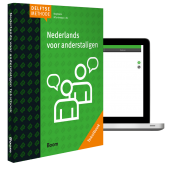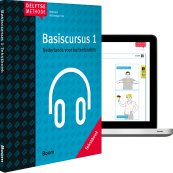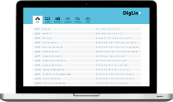Living and working in the Netherlands
Practical matters
If you have registered with the municipality, you have health insurance and you have completed your integration requirement (or are working on it), you have fulfilled your most important obligations. But there are still some things that are handy to arrange.
DigiD
In the Netherlands, you can arrange many things over the internet, such as your tax return, rent subsidy and healthcare allowance, make an appointment at the hospital and review your health insurance. DigiD is a personal username and password that you use to log into all of these websites. You can request a DigiD from the DigiD.nl website.
A Dutch bank account
It is useful to open a Dutch bank account. If you work here, your employer can deposit your pay to it, you can pay in stores with your bank card at no additional cost, and it makes it easier to pay your bills. If you have a citizen services number (burgerservicenummer, BSN), you can open an account at most banks.
Taxes
If you live and work in the Netherlands, you must pay tax to the Tax Department (Belastingdienst) and local taxes to your municipality and to the water board. How much tax you pay depends on your income and your situation. See the Tax Department’s website (also available in English) for more information.
Medical care
In the Netherlands, you must pay for your medical care. A great deal of care will be reimbursed by your health insurance, but not everything. Some healthcare costs are also at your own risk: you pay those yourself. It is good to find your own general practitioner in your area; that is your first point of contact with health complaints. Family doctor visits are always reimbursed by your insurance. You can find a GP through this website.
Did you know that people with lower income can get financial support in the Netherlands?
Subsidies: financial support for lower incomes
For people with lower incomes, there are various benefits available. You may be entitled to one of the following subsidies:
- Rental subsidy (huurtoeslag): this makes it easier to pay your rent.
- Healthcare allowance (zorgtoeslag): this is a contribution to help pay for your health insurance.
- Child benefit (kinderbijslag): this allows you to buy necessary items for your children, such as clothes.
- Childcare allowance (kinderopvangtoeslag): this is a contribution to childcare costs.
Read more about benefits on the Tax Department (Belastingdienst) website.
Enrol in an educational program
Now that you are living in the Netherlands, do you want to enrol in an educational programme, to increase your job opportunities for example? To be admitted to an educational program, you usually have to prove that you have sufficient mastery of the Dutch language. By taking the State Examination NT2 (Staatsexamen NT2) and earning the diploma, you can show that your Dutch is at the level required for the degree program you wish to follow.
Read more about the State Examination NT2 (Staatsexamen NT2).
Work
If you are going to work in the Netherlands, you must at least have the following things:
- Citizen services number (burgerservicenummer, BSN)
- Identification
- A Dutch bank account
- A work permit (werkvergunning)
In addition, you should take into account that the diplomas that you earned in your home country do not automatically apply in the Netherlands. On the Nuffic website, you can determine what your degree is worth in the Netherlands.






